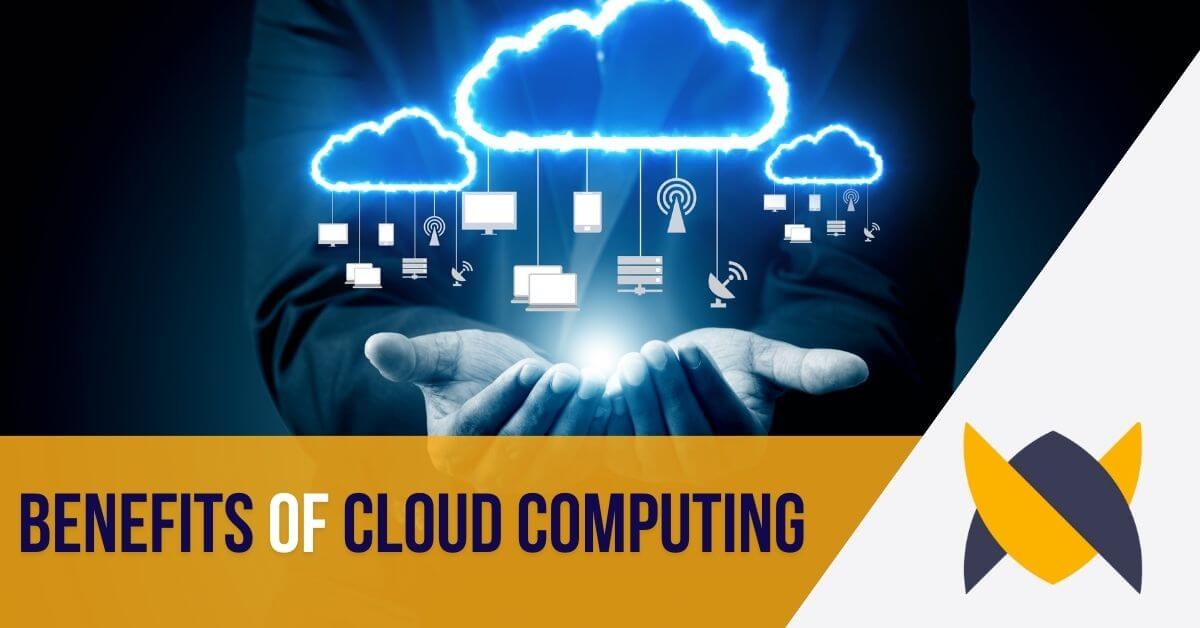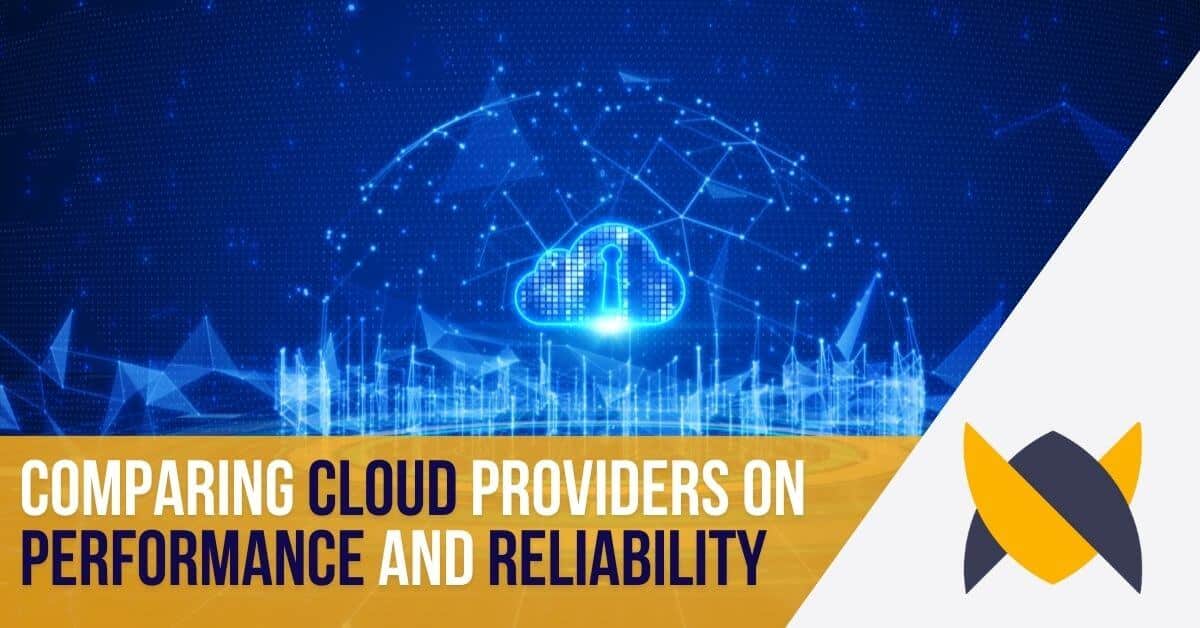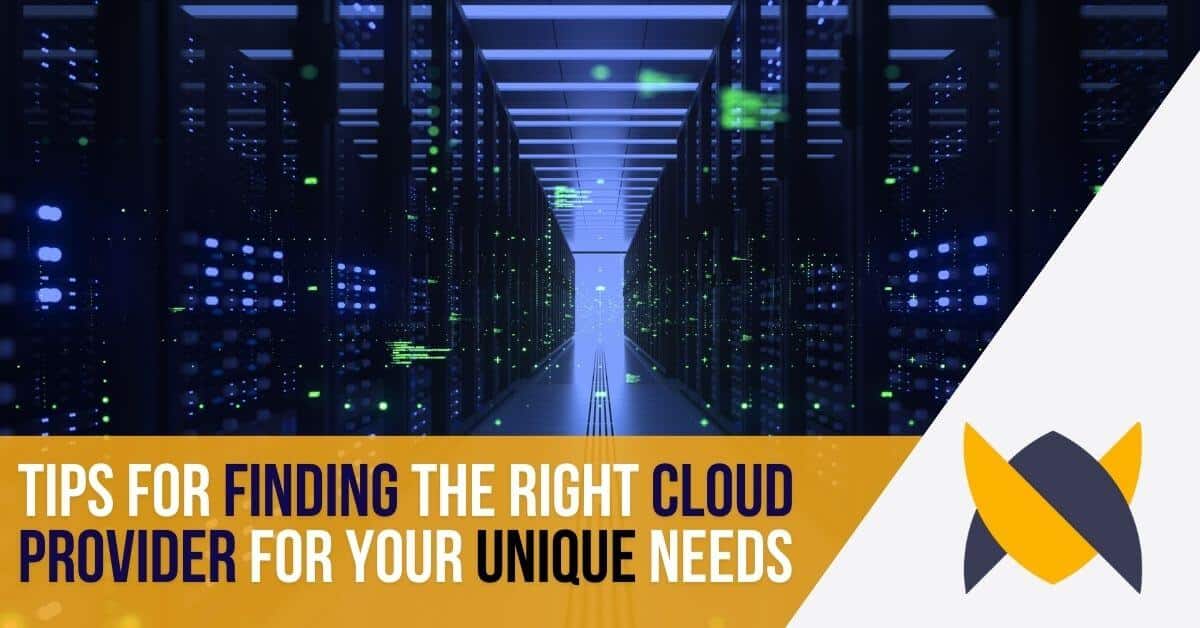How to Choose the Right Cloud Provider for Your Needs
The cloud offers incredible scalability, cost benefits, and flexibility for businesses of all sizes. But with so many different cloud providers in the market, it can be difficult to determine which one is the best fit for your unique needs. In this article, we’ll provide you with essential tips and advice for finding the right cloud provider for your business.
Benefits of Cloud Computing

Cloud computing provides businesses with a range of advantages over traditional, on-premise hosting. This includes scalability, flexibility, cost savings, and faster time to market. With cloud computing, businesses can quickly scale their computing resources up or down on demand, ensuring they always pay for the resources they need. This eliminates the need to invest in hardware and software upfront, which can be expensive. Additionally, many cloud providers offer pay-as-you-go pricing models, allowing businesses to only pay for the resources they use. Finally, since cloud computing is hosted offsite, businesses benefit from faster deployment times and increased access to the latest technologies.
Cloud computing also offers businesses increased security and reliability. Cloud providers use advanced security measures to protect data and applications, and they are able to quickly respond to any security threats. Additionally, cloud providers are able to provide businesses with reliable uptime and performance, as they have the resources to quickly respond to any issues. This ensures businesses can always access their data and applications when they need them.
Different Types of Cloud Solutions
Cloud computing can be divided into three main categories: public cloud, private cloud, and hybrid cloud. Public cloud solutions are hosted in a shared environment and are managed by the cloud provider. Private cloud solutions are hosted on private infrastructure, offering greater control and customization. Hybrid cloud solutions combine features of both public and private clouds, allowing businesses to reap the benefits of both. It’s important to understand the different types of cloud solutions available so you can determine which is best for your business.
Public cloud solutions are typically the most cost-effective option, as they are hosted in a shared environment and managed by the cloud provider. This means that businesses don’t have to worry about the cost of hardware or software, as the cloud provider takes care of all of that. Additionally, public cloud solutions are often the most scalable, as businesses can easily add or remove resources as needed.
Private cloud solutions offer greater control and customization, as they are hosted on private infrastructure. This means that businesses can customize their cloud environment to meet their specific needs. However, private cloud solutions are typically more expensive than public cloud solutions, as businesses must pay for the hardware and software required to run the cloud environment. Additionally, private cloud solutions are not as scalable as public cloud solutions, as businesses must purchase additional hardware and software to increase their resources.
Understanding Your Business Requirements
The first step in finding the right cloud provider is to understand your business requirements. What kind of applications will you be running? What type of data will you be storing? How much storage and computing power do you need? Answering these questions will help you narrow down the range of potential providers that could meet your needs.
It is also important to consider the security measures that the cloud provider offers. What kind of encryption do they use? Are there any additional security measures that can be implemented? Additionally, you should consider the cost of the service and the level of customer support that is available. By taking all of these factors into account, you can ensure that you are selecting the best cloud provider for your business.
Questions to Ask Potential Cloud Providers
When researching potential cloud providers, it’s important to ask them questions about their services. Here are some key questions you should ask: What type of cloud solutions do you offer? What features do your services include? Do you offer any additional services such as storage or security? What are your pricing models? What kind of customer support do you provide? Are you compliant with any industry regulations? Answering these questions will give you a better understanding of what each provider has to offer.
It’s also important to ask about the provider’s track record. How long have they been in business? What kind of experience do they have in the cloud industry? What kind of customer feedback have they received? Additionally, you should ask about the provider’s security measures. What kind of encryption do they use? How do they protect customer data? What kind of disaster recovery plans do they have in place?
Finally, you should ask about the provider’s scalability. Can they easily scale up or down to meet your needs? Are there any additional fees for scaling up or down? Are there any limits to the amount of resources you can use? Asking these questions will help you make an informed decision about which cloud provider is right for you.
Comparing Cloud Providers on Performance and Reliability

When evaluating potential cloud providers, it’s important to compare them on performance and reliability. Find out what type of infrastructure they use and how responsive their customer support team is. Additionally, ask them about their uptime guarantees and how quickly they can scale resources up or down as needed. These factors will give you a better idea of how reliable the provider is.
It’s also important to consider the security measures that the cloud provider has in place. Ask them about their data encryption protocols, authentication methods, and other security measures they have in place to protect your data. Additionally, find out if they have any certifications or accreditations that demonstrate their commitment to security.
Analyzing Security Features of Cloud Providers
Security is an important factor when evaluating potential cloud providers. Find out what type of security measures they have in place, such as encryption, multi-factor authentication, data loss prevention, etc. Additionally, ask them about their approach to data privacy and compliance with industry regulations such as HIPAA or GDPR.
It is also important to understand the provider’s security policies and procedures. Ask about their security protocols, such as how they handle data breaches, how they respond to security threats, and how they monitor and audit their systems. Additionally, inquire about their incident response plan and how they handle customer data.
Finally, make sure to ask about their backup and disaster recovery plans. It is important to know how they will protect your data in the event of a system failure or natural disaster. Additionally, ask about their data retention policies and how they ensure data is securely deleted when no longer needed.
Evaluating Cost and Service Level Agreements
Costs are an important consideration when selecting a cloud provider. Ask potential providers about their pricing models and look for any hidden costs or fees. Additionally, evaluate any service level agreements (SLAs) they offer, as these can provide assurance that the provider will meet your expectations for performance and reliability. Understanding these factors will help you find the most cost-effective solution for your business.
When evaluating SLAs, it is important to consider the provider’s track record for meeting their commitments. Ask for references from other customers and read reviews to get an idea of how reliable the provider is. Additionally, look for any guarantees or penalties that the provider offers in the event that they fail to meet their SLAs. This will help you ensure that you are getting the best possible service for your money.
Preparing for a Successful Migration to the Cloud
Once you’ve selected a cloud provider, it’s important to ensure that your migration process is successful. This involves planning ahead and preparing for any potential issues that may arise during the migration process. Have a backup plan in place in case anything goes wrong. Additionally, make sure that your staff are adequately trained on the new system.
It is also important to ensure that your data is secure during the migration process. Make sure that all data is encrypted and that you have a secure connection between your cloud provider and your existing systems. Additionally, make sure that you have a plan in place to monitor the performance of your cloud system once the migration is complete.
Tips for Finding the Right Cloud Provider for Your Unique Needs

Choosing a cloud provider is an important decision for any business. By understanding your business requirements, asking questions, comparing providers on performance and reliability, and evaluating costs and SLAs, you can find the best provider for your unique needs. Additionally, preparation is key to ensure a successful migration process. By following these steps, you can make sure that you select the perfect cloud provider for your business.
When researching cloud providers, it is important to consider the features and services they offer. Make sure to look for providers that offer the features and services that are most important to your business. Additionally, it is important to consider the security measures that the provider has in place. Make sure to ask questions about the provider’s security protocols and ensure that they meet your business’s security requirements.
Finally, it is important to consider the customer service and support that the provider offers. Make sure to ask questions about the provider’s customer service and support policies and procedures. Additionally, it is important to consider the provider’s reputation and customer reviews. This can help you to get a better understanding of the provider’s customer service and support capabilities.


